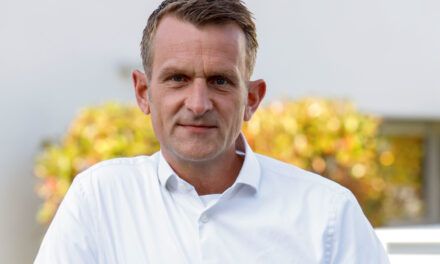Delegates to COP27 greeted Luiz Lula da Silva, Brazil’s recently re-elected president, with enthusiasm. Whatever the political differences between Lula and his rival, former president Jair Bolsonaro, their opposing stances on the deforestation of the Amazon had global repercussions. Bolsonaro presided over the fastest ever loss of rainforest. Around 42,000 km2 of rainforest – an area the size of Denmark – has been lost on Bolsonaro’s watch. The Amazon rainforest is regarded as one of the ‘tipping elements’ capable of destabilising the global climate. A loss of 20-25% of forest cover in the Amazon basin could be enough to bring us to the tipping point. Around 18% of the Brazilian Amazon has already been cleared, and some 60% of the rainforest’s total area lies within Brazil’s borders. During president Lula’s first two terms in office, deforestation rates dropped significantly, rising sharply after the populist Bolsonaro took office as president of Brazil in January 2019.
President Lula has pledged to stop the deforestation. Germany and Norway have signalled that they are willing to help revive the Amazon Fund, a coalition working to protect the area. The issue of deforestation, and how to help Brazil, the Democratic Republic of Congo and Indonesia, three countries that are home to more than half the world’s rainforests, was raised by G20 leaders in Bali earlier this week.
Meanwhile back in Sharm El Sheikh, as what is being called ‘Africa’s COP’, the issue of what will power the continent’s drive for development was being debated. How should Africa balance economic progress that will lift hundreds of millions of people out of poverty with the need to cap the emissions that cause climate change?
African leaders say that the answer is gas, and are looking for the rich world’s acceptance to tap into the continent’s vast natural gas reserves, arguing that this energy source is less polluting than coal or oil, and cheaper to roll out than solar energy. They say that their countries need gas to generate electricity and make it available to hundreds of millions of their people who currently lack access to the grid. They also want to increase exports of liquified gas to Europe, which seeks an alternative to Russian gas.
This argument makes sense, if one is to accept natural gas as a step along the way to zero carbon.
But climate campaigners and delegates from low-lying islands have said this will lock Africa into using gas – a fossil fuel, albeit much cleaner than coal or oil – for decades, and will make the crucial goal of slowing the global temperature rise more difficult. They argue that the continent should embrace renewable energy instead, pointing out that Africa has 60% of the world’s solar power potential but that only 1% of the world’s current installed solar capacity is on the continent.
Both sides have a strong case; we will see whether a compromise can be reached before COP27 comes to an end. The push by African governments for funding for development of gas fields has taken place away from the main COP27 talks, with deals being negotiated directly with companies.
A flavour of the argument comes in this quote made to the BBC by Tosi Mpanu Mpanu, the lead negotiator for the Democratic Republic of Congo, who said “African states’ priority now is to reduce poverty and not to save the planet. When only 10% of our population has access to electricity what energy transition do you expect them to make? First we need to make electricity accessible for 90-100% of our people, then we can think of energy efficiency, green energy and making the transition to renewables.”
More in a summing-up blog piece next week.




























